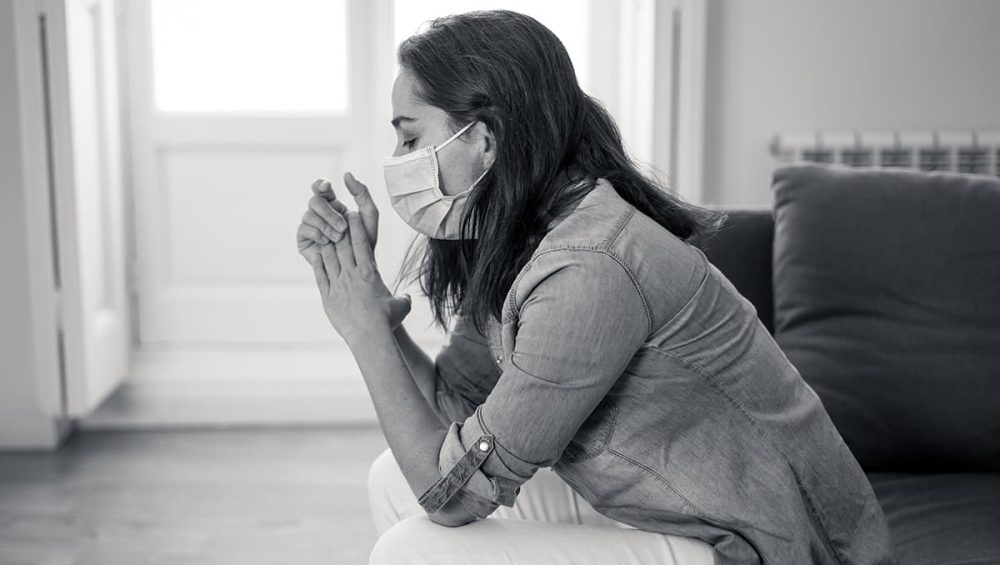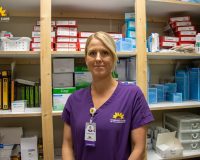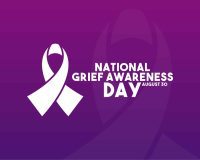
All medical personnel, including hospice workers, have had to face personal risks of exposure to COVID-19 while working with patients and their families during this pandemic. While personal protective equipment has been helpful in its ability to protect employees, the risk of contracting the virus and spreading it to loved ones has remained causing stress and fears among staff. For hospice workers especially, the need to socially distance has impacted the ability to provide hands-on care and comfort to patients and families nearing the end of life and providing care for high-risk patients and their families.
The pandemic has brought about, sometimes insurmountable, feelings of isolation, anxiety, and stress that people have been living with during this crisis. “Issues of work/life balance and self-care have certainly been active in conversations in my experience,” said Michael Milward, former CEO of Hospice of Santa Cruz County and strategic advisor to the National Partnership for Hospice Innovation (NPHI). “Dying is hard work and dealing with death and dying on a daily basis has its own challenges. Supporting patients and families involves a great deal of complexity, family systems, and social systems around what’s happening. That’s all just been heightened by the changes that have been asked of us in the pandemic.”
NPHI recently joined forces with the National Alliance on Mental Illness (NAMI) in a series of biweekly discussions aimed at leaders working to staff during the pandemic, including best practices on promoting mental health and eliminating some of the barriers to access.
Tom Koutsoumpas, president and CEO of NPHI and co-chair and co-founder of the Coalition to Transform Advanced Care (C-TAC) recently expressed to Hospice News, “You’ve got to put all your efforts and energy into providing that love, support, and care that hospice and palliative care workers do every day, yet they’re also struggling personally. Looking for ways to support each other and really helping each other through this period with professional support as well as personal interaction is really critical.”
NPHI’s partnership with NAMI brought in additional resources such as a help hotline for workers and access to counselors, psychiatrists, psychologists, and various other mental health support services. Even with all these services being provided, many workers have difficulty coming forward to express and address their own needs as they care for patients and their families during this time.
“Hospice workers tend to be excellent caretakers and providers of comfort,” said Benyamin Cirlin, licensed social worker for Visiting Nurse Service of New York (VNSNY) Hospice Care. “However, this does not always lead to good self-care. Too often, larger-than-normal caseloads cause hospice workers to put their own mental health needs behind those of the patients they care for.” The organization’s hospice bereavement and emotional support team were recently recognized for their efforts in a report highlighting teams who played pivotal roles during New York’s response to the coronavirus crisis.
Employers need to encourage staff members to engage in support groups that are anonymous, according to Willis Partington, VNSNY’s lead bereavement counselor. “There should be a variety of groups so people feel that their experience is being supported and they can participate however they wish even if that means just listening,” said Partington. “Agencies should also designate staff members to engage in individual sessions for stress debriefing.”
Heightened awareness was brought to the severity of mental health impacts when two New York City health care workers committed suicide in April this year. They served in areas that were some of the hardest hit by COVID-19. Friends and family of both workers cited anxiety and pressures of coping with an onslaught of infected and dying patients as leading contributing factors.
To help employees deal with the long-term effects of the pandemic crisis, there is a discussion to continue employee access to mental health and wellness services for the longer term in the belief that it could improve quality of life for staff, and possibly improve morale and retention.
“It’s not just the sudden and severe emergence of COVID-19 that we need to learn from,” said VNSNY’s President and CEO Marki Flannery. “It’s the lasting effects and lingering impact of the pandemic that we must keep in mind. We can’t know what lies ahead, but we can listen, learn and keep our people strong.”




